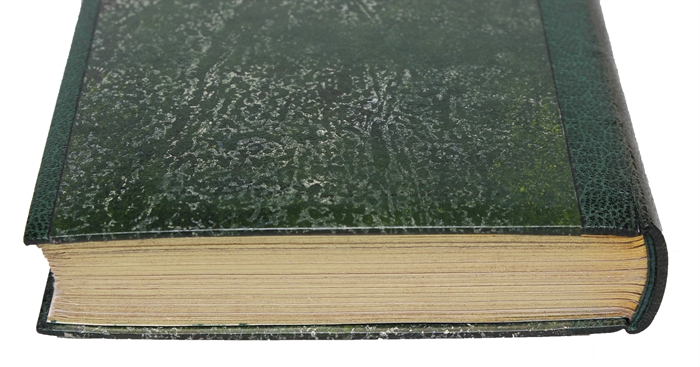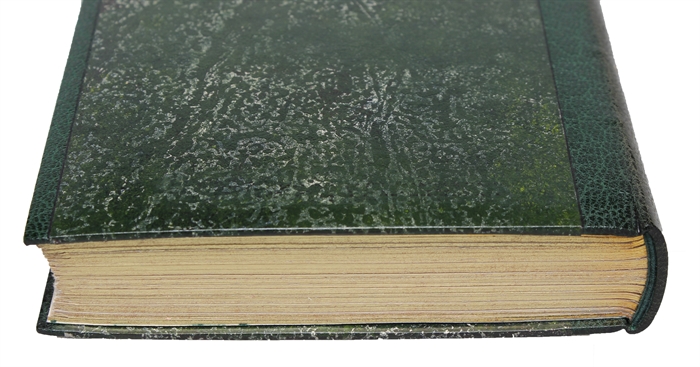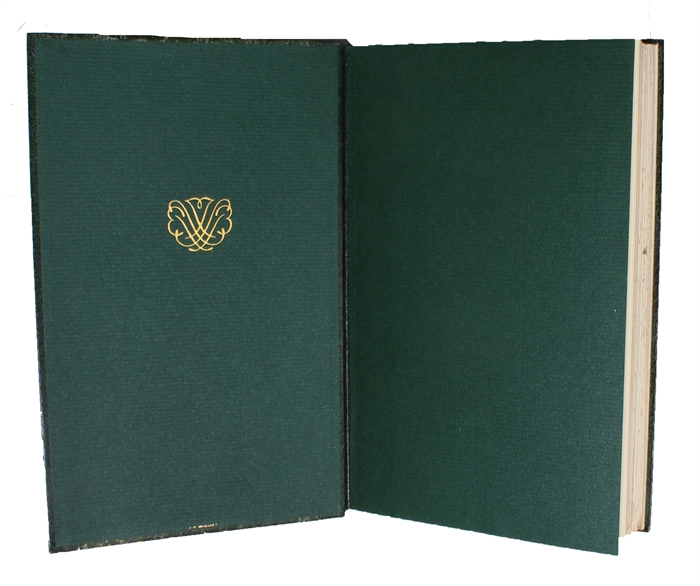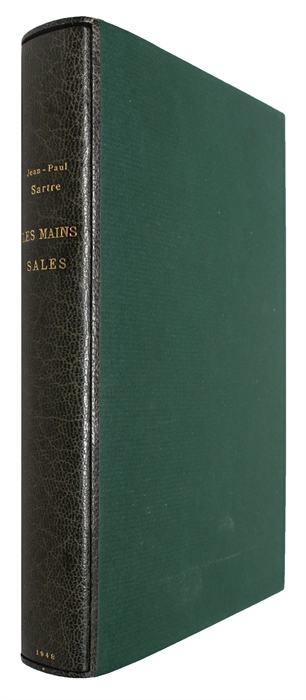THE HUGELY CONTROVERSIAL PLAY ON COMMUNISM
SARTRE, JEAN-PAUL.
Les Mains Sales. Piece en sept tableaux.
(Paris), Gallimard, (1948).
Bound uncut with the original printed wrappers in an exquisite dark green half morocco binding with gilt title to spine. Dark green marbled paper over boards. Top-edge gilt. Gilt super-ex-libris to inside of front board, the bottom of which is signed in gilt: "J.P. Miguet".Top-edge gilt. Housed in a green paper slip-case with green morocco edges.
First edition in book form of Sartre's hugely controversial and extremely popular political drama, that of his plays to enjoy the greatest public success. Number LXXXIV out of 210 numbered copies on alfa mousse Navarre (15 copies were printed on vélin de Hollande and numbered I-X + A-E (H.C.), 60 on vélin pur fil Lafuma Navarre, numbered XI-LX + F-O (H.C.), 210 on alfa mousse Navarre, numbered LXI-CCLX + a-j - apart from that, 1040 copies appeared on regular vélin supérieur, numbered 1-1040).
The work, "Dirty Hands", was originally published in two parts of the periodical "Les Temps Modernes", in March and April of 1948. Later the same year, in the Spring-Summer of 1948, as few extracts of it appeared in "Yale French Studies", and in June 1948, the work appeared for the first time in book form (as it is here). The work was hugely popular and appeared again numerous times after the first book edition: in 1953, 1954, 1961, 1962, and in English in 1963, and Italian in 1964. It was performed at the Antoine Theatre as early as 1948, and remained on tour for years, until in 1951 it was made into a film (by Fernand Rivers).
The political drama, which takes place during the last two years of World War II, in Illyria, a fictional East European country, an ally of Nazi Germany, which is on the verge of being annexed to the Eastern Bloc, tells the story of the assassination of a leading politician, carried out by the young communist, the 21-year-old bourgeois intellectual Hugo Barine. The main question of the work is whether the killer's motivations are political or personal, and not who did or did not commit the murder.
The play was not only hugely popular, it also caused great controversy and great opposition. Sartre was interviewed numerous times because of it, and a huge number of articles and critiques of it were published. Right-wingers welcomed it as anti-communist, and left-wingers attacked it for the same reason. When the film came out in 1951, Communists threatened the cinemas showing it, and after that, the play itself was not re-staged in France until 1976. In fact, it was staged in no socialist state until November 1968, when it was shown in Prague after the invasion of Czechoslovakia by fellow Warsaw Pact forces.
Contat & Rybalka: 48/145
Order-nr.: 45827





